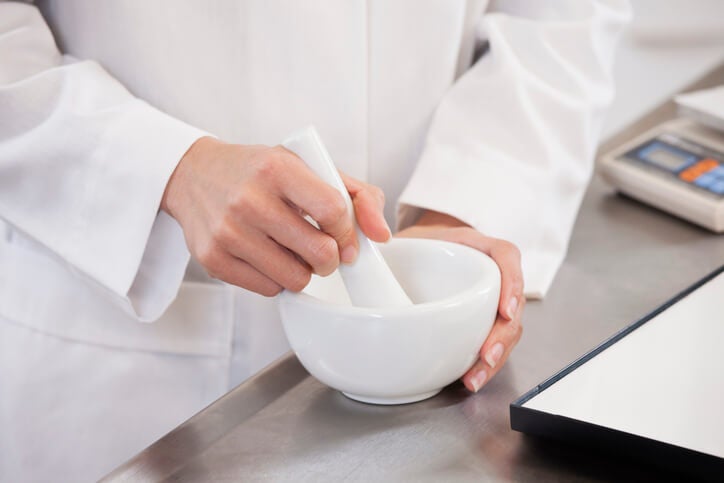Compounded GLP-1 drugs: What you need to know

The growing popularity of GLP-1 medications for weight loss has led to shortages of the drugs. Due to this drug shortage, it is legal for certain pharmacies to make copycat medications called compounded medications. You may be seeing ads for or know someone who is taking a compounded GLP-1.
Traditional medications are approved for use by the Food and Drug Administration (FDA). The FDA ensures the safety, effectiveness and quality of drugs that are available in the United States. In the U.S., special pharmacies called “compounding pharmacies” use FDA-approved ingredients to create customized medications. Compounding pharmacies may also customize medications in other ways, like changing the flavor or dosing.
One catch with compounded medications: The FDA does not review their safety, effectiveness or quality.
In many cases, compounded GLP-1s are a more affordable option than traditional GLP-1s. That doesn’t, however, make them a good choice. Here are a few reasons why:
Less active ingredient: The companies that make some of the FDA-approved GLP-1 drugs have sued compounding pharmacies for selling compounded medications that contain less of the active ingredient than they claim to.
Dosing errors: Consumers have reported problems with injecting too much compounded GLP-1 drugs, sometimes due to miscalculations from their care providers. The amounts prescribed in these compounded drugs may also be higher than what is approved by the FDA.
Improper shipping: Injectable GLP-1 drugs require refrigeration. Consumers have filed complaints with the FDA over compounded GLP-1 medication arriving warm or without adequate ice packs. This can impact the drug’s quality.
Compounded GLP-1 medications can sometimes be a more affordable option, especially when brand-name drugs are in short supply or not covered by insurance. However, because compounded versions aren’t reviewed by the FDA for safety, quality or effectiveness in the same way as approved GLP-1 medications, their results can vary. If cost is a concern, speak with your care provider about safe, lower-cost options or ways to make FDA-approved GLP-1s more affordable.
CLC016640.A
Was this article helpful?
Don't wait! Unlock a healthy, happy new year, at no cost to you.
This content is not intended to be a substitute for professional medical advice, diagnosis or treatment. Always seek the advice of your physician or other qualified health provider with any questions you may have regarding a medical condition.
